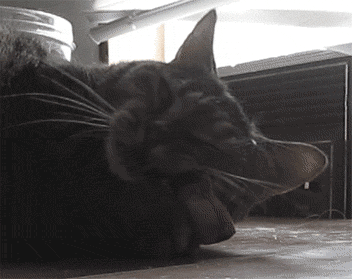Why cats love catnip, plus a few other fun factoids about the herb
My cats were big fans of catnip from the moment they
got their first whiff of it. They love to roll around in it, rub their
whiskers through it and get very testy when you take it away from them.
So what is it about this strange, dry substance that gets
cats so excited? Is it the feline equivalent to weed? In which case,
should we be concerned about them "getting high" too much? Where did it
come from, and how long has it been around? The herb certainly has a lot
of mystery surrounding it, even for the scientists who have tried to
dissect its attributes.1. What exactly is catnip?
Catnip comes from the Nepeta cataria, which closely resembles mint. Fun fact: This is why catnip is sometimes referred to as catmint. The plant is called Nepeta because that's the Latin derivative for the Italian town from which catnip was first harvested (the town was called Nepete).2. Why does it drive cats crazy?
According to chemists at the American Chemical Society, cats react to the psychoactive chemical compound in catnip known as nepetalactone. It binds to the receptors in their noses and in turn triggers a neurological response. The effect is similar to what they experience when they're exposed to sexual pheromones. Scientists still don't know what it is about nepetalactone that causes cats to react the way they do.3. How long does a catnip high last?
The effects of catnip can last anywhere from 10 minutes to an hour depending on the cat.4. Are all cats receptive to the effects of catnip?
About 70 percent of cats can enjoy the effects of catnip. It can even affect other species of felines, such as tigers. It is an inherited trait, so if your cat's parents didn't react to it, neither will your cat.5. What happens if humans ingest it?
Catnip has been used in everything from herbal teas to soups to liquors since the 1700s. According to Drugs.com, it can also be smoked medicinally and reportedly caused euphoria in the 1960s.6. What benefits does it have?
Catnip-infused tea has been used to treat indigestion, induce menstruation, increase appetite and as a sedative. People sometimes smoke the dried leaves to cure respiratory infections. That being said, there's little clinical data to support how effective catnip is at aiding any of these ailments.7. What happens if my kitten gets a hold of catnip?
Nothing. Catnip typically has no affect on felines before they're 3 to 6 months old, according to the Humane Society.8. Does catnip go bad?
No, but it does lose its potency over time. In order to prolong catnip's shelf life, keep it in a sealed, plastic bag or container when it's not being enjoyed by your cat.
0 评论:
Post a Comment